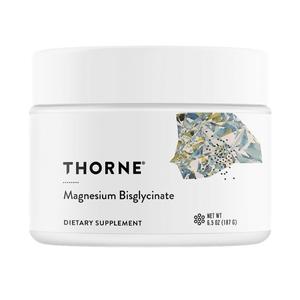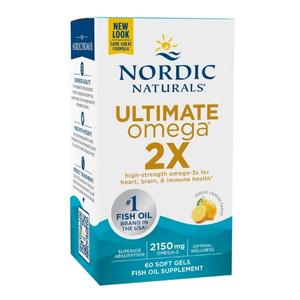5 Best Supplements For Lung Health In 2024 To Improve Your Lungs
All articles are produced independently. When you click our links for purchasing products, we earn an affiliate commission. Learn more about how we earn revenue by reading our advertise disclaimer.
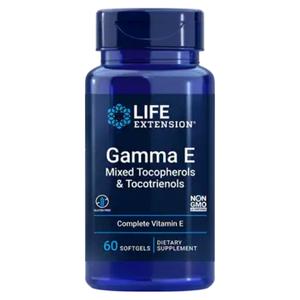
Life Extension Gamma E Mixed Tocopherols & Tocotrienols
- Contains a full spectrum of vitamin E compounds.
- Provides powerful antioxidant protection.
- Convenient one-softgel serving size.
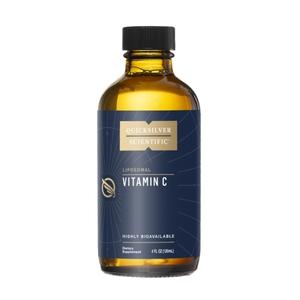
Quicksilver Liposomal Vitamin C
- Liposomal vitamin C is easy to absorb.
- Provides immune system support.
- May help improve lung function in smokers.
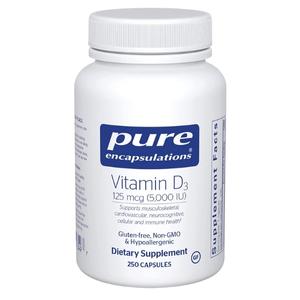
Pure Encapsulations Vitamin D3
- Contains 125 micrograms — 5,000 IU — vitamin D per capsule.
- Available in 60, 120, or 250 per bottle.
- Certified gluten-free and vegetarian.
Part of the respiratory system, your lungs help bring oxygen into the body and expel carbon dioxide. Because oxygen plays an important role in countless bodily functions, lung health is essential.
Unfortunately, from smoking and air pollution to lack of exercise and nutritional deficiencies, many environmental and lifestyle factors have the potential to impair lung function. In addition to eating lung-supporting foods and managing medical conditions that affect lung function, taking supplements for lung health could help you breathe easier.
Best Supplements For Lung In (April. 2024)
- Life Extension Gamma E Mixed Tocopherols & Tocotrienols – Editor’s Choice
- Quicksilver Liposomal Vitamin C – Best Vitamin C Supplement
- Pure Encapsulations Vitamin D3 – Best Vitamin D Supplement
- Thorne Magnesium Bisglycinate – Best Magnesium Supplement
- Nordic Naturals Ultimate Omega 2X – Best Omega-3 Supplement
Who Should Use Supplements For Lung?
Breathing is an involuntary action in which every human engages day in and day out. While you may not have to consciously force your body to take in oxygen and exhale carbon dioxide, breathing can be more difficult for some than for others.
Supplements for lung health may help mitigate symptoms[1] for individuals suffering from respiratory conditions like chronic obstructive pulmonary disease and asthma,[2] though more evidence is needed to support these claims. Some research[3] suggests that certain vitamins for lungs — like vitamin D supplements — may even help prevent the development of chest infections in individuals with respiratory conditions like COVID-19.
For otherwise healthy individuals, lung supplements that contain antioxidants like vitamin C may help strengthen the body’s defenses against environmental aggressors that can negatively affect lung health, like pollution and secondhand smoke. Research[4] also indicates that vitamin C supplementation can help shorten the duration of common colds.
What Vitamins Are Good For Lung Health?
When it comes to the best vitamins for the lungs, there are two categories to consider. The first is dietary supplements that help correct nutritional deficiencies which may be impairing lung function. For example, the prevalence of vitamin D deficiency is particularly high[5] among patients with COPD and supplemental vitamin D intake has been shown to reduce symptom severity.
The second category of lung supplements includes those which help protect against disease and environmental aggressors that negatively impact lung function. For example, the mineral zinc plays a role in both immunity and oxygenation in the body. Some studies[6] suggest zinc may help protect against rhinovirus, the virus that causes the common cold. Zinc supplements may even reduce the duration of a cold by as much as 33%.
Some of the best vitamin supplements for lung health include:
Vitamin C
This vitamin[7] has strong antioxidant properties and has been shown to improve your cells’ defenses from oxidative damage caused by UV radiation, air pollution, and secondhand smoke. It also plays a key role in supporting the immune system and may help fight lung inflammation.
Zinc
Another nutrient that can be helpful during cold and flu season, zinc is a mineral that may also reduce the risk of respiratory infections and lung cancer.[8] Alternatively, zinc deficiency also increases the risk of severe symptoms in cases of COVID-19.[9]
Vitamin D
This nutrient is particularly important for individuals who are at risk for or are already suffering from chronic respiratory conditions like asthma and COPD.[10] If you’re deficient in vitamin D, your risk of developing respiratory infections and lung conditions may be higher.[11]
Magnesium
This mineral supports a variety of critical roles in the body, including keeping your lungs healthy. Studies have shown a link between magnesium deficiency and several lung conditions including chronic asthma.[12] Supplemental magnesium[13] may benefit individuals with lung conditions by relaxing the smooth muscle cells in the lungs and reducing lung inflammation.
N-acetyl Cysteine (NAC)
N-acetyl cysteine is a precursor to glutathione which is an important antioxidant for lung health. High-dose supplements of NAC have shown potential[14] to treat COPD. Animal studies[15] conducted in mice also suggest that NAC supplementation may help reduce inflammation that causes by asthma.
Vitamin E
Not only have vitamin E supplements shown potential for reducing symptoms of respiratory diseases like COPD and asthma, but they may help improve lung function overall. The results of a 2017 study[16] suggest higher levels of vitamin E in the blood from supplements were associated with improved lung function. For this reason, some suggest that vitamin E may be the best vitamin for lung repair.
Omega-3 Fatty Acids
Primarily known for their anti-inflammatory properties, omega-3 fatty acids are very popular in natural medicine. Low dietary intake of omega-3s has been associated[17] with an increased risk for asthma while higher levels of omega-3s in the blood are associated with better asthma control[18] and reduced reliance on corticosteroid medications.
5 Best Supplements For Lung Health To Buy In 2024
Life Extension Gamma E Mixed Tocopherols & Tocotrienols
Formulated with the full spectrum vitamin E compounds, this product is the master antioxidant supplement when it comes to supporting respiratory health.
- Contains a full spectrum of vitamin E compounds.
- Provides powerful antioxidant protection.
- Convenient 1-softgel serving size.
- May interact with anticoagulant or antiplatelet medications.
While often referred to as a single nutrient, vitamin E is actually a family of eight different antioxidant compounds. This Life Extension Gamma E formula contains the full spectrum of mixed tocopherols and tocotrienols to deliver potent antioxidant protection for your lungs and immune cells. Studies show[19] that mixed alpha- and gamma-tocopherol is more effective against oxidative stress than either of these tocopherols alone.
This supplemental vitamin comes in softgel form with one per serving and 60 per bottle. Each serving contains 30.15 milligrams of vitamin E as D-alpha tocopherol with 524 milligrams of mixed tocopherol. It is a gluten-free, non-GMO product free from synthetic additives. The only concern is whether the mixed tocopherol contains the γ-tocopherol,[16] which has the opposite effects on lung health as the other tocopherols. This is not stated.
Quicksilver Liposomal Vitamin C
Formulated with liposomal vitamin C, this supplement offers superior absorption and improved tolerability over conventional vitamin tablets and softgels. Liposomal[20] means that the active drug is inside small, fat-like particles for easier absorption.
- Liposomal vitamin C is easy to absorb.
- Provides immune system support.
- May help improve the love function in smokers.
- Liquid dosing is less exact than softgels.
- May be too high in sodium for some.
What good do dietary supplements do if your body can’t absorb them properly? This liquid vitamin C preparation is formulated for easy absorption and each 5-milliliter dose delivers 1000 milligrams of vitamin C — as sodium ascorbate. Because it is made from liposomal vitamin C, this product starts absorbing as soon as the liquid hits your mouth.
By resolving vitamin C deficiency, this product may help improve immunity and overall health. Vitamin C has been shown to reduce the duration[21] of respiratory infections and may protect against declining lung function in those with asthma.[22] If you’re a smoker, achieving higher levels of vitamin C in your blood may improve your lung function.[23]
Pure Encapsulations Vitamin D3
Available in bottles of up to 250, this 125-microgram capsule makes it easy to achieve the vitamin D levels recommended by your doctor to improve lung function.
- Contains 125 micrograms — 5,000 IU vitamin D per capsule.
- Available in 60, 120, or 250 per bottle.
- Certified gluten-free and vegetarian.
- Not a vegan formula.
- Doesn’t guarantee against allergen cross-contamination.
Not only is vitamin D an essential nutrient for respiratory health overall, but vitamin D deficiency can raise your risk[24] for developing respiratory diseases like COPD. This vitamin D supplement delivers 125 micrograms — 5,000 IU — of encapsulated vitamin D as cholecalciferol per serving. It is available in bottles with 60, 120, or 250 capsules which makes it easy to achieve even high doses recommended by a medical professional.
Pure Encapsulations vitamin D3 is completely free from a wide array of common allergens including wheat, soy, dairy, eggs, gluten, peanuts, and tree nuts. While the manufacturer has an Allergen Standard Operating Procedure to prevent cross-contamination, it doesn’t expressly state whether or not its products are manufactured in a facility that might involve cross-contamination. The formula doesn’t contain any artificial colors, flavors, or sweeteners and it’s free from GMO ingredients and coatings of any kind. Unlike some vitamin D supplements, it doesn’t contain magnesium stearate, for those who may be concerned about its potential genetic toxicity.[25]
Thorne Magnesium Bisglycinate
Lightly sweetened with monk fruit and in a simple-to-administer powdered form, this magnesium glycinate supplement is easy to absorb.
- Magnesium glycinate is highly absorbable.
- Easy-to-administer powdered form.
- NSF Certified for Sport.
- May cause gas, bloating, or diarrhea.
Magnesium plays an important part in reducing lung inflammation and it may be beneficial in protecting[26] against the loss of lung function in individuals suffering from respiratory health problems like COPD and lung cancer. Magnesium glycinate is a more easily absorbable[27] form of magnesium than magnesium oxide which is what makes this product preferable to others on the market.
In its powdered form, Thorne Magnesium Bisglycinate is easy to administer by mixing with water or another liquid. Each scoop delivers a 200-milligram dose of magnesium and the formula is lightly sweetened with monk fruit. In addition to being dairy-free, soy-free, and gluten-free, this formula is NSF Certified for Sport which makes it a great choice for athletes.
Nordic Naturals Ultimate Omega 2X
If you hate taking omega-3 supplements because they have a fishy taste, the fresh lemon flavor of these softgels may be more appealing.
- Contains 2150 milligrams of total omega-3s per serving.
- Fresh lemon flavor, no fishy aftertaste.
- Made from 100% wild-caught fish.
- The dose may be too high for some people.
Inflammation negatively affects every aspect of your health, including the wellness of your respiratory system. Omega-3 fatty acids have strong anti-inflammatory properties which can be particularly helpful against inflammatory respiratory health conditions like asthma.[28] This supplement is a particularly rich source of eicosapentaenoic acid and docosahexaenoic acid, delivering a total dose of 2150 omega-3s per 2-softgel serving.
This product is non-GMO verified and 3rd party purity tested. It is made from 100% wild-caught sardines and anchovies with added lemon flavoring to disguise the fishy taste. The recommended dose is two softgels per day taken with food.
Benefits Of Vitamins For Lung Health
The benefits of vitamins for your respiratory system depend on numerous factors, most notably any respiratory health problems or nutritional deficiencies you may have. Supplements are generally not intended for use as a first line of treatment for respiratory conditions but they can offer support. They may also help mitigate symptoms or protect against minor concerns.
Here are some of the ways in which vitamins may support respiratory system health:
Improved Lung Function
Vitamin E in particular has shown promise[29] in improving lung function and overall respiratory system health — especially for individuals with COPD and asthma.
Reduced Inflammation
Chronic inflammation in the lungs can reduce respiratory system function over time. Several vitamins show promise in reducing inflammation in the lungs such as vitamin C, magnesium, and N-acetylcysteine.
Shortened Duration Of Colds
Both vitamin C and zinc have the potential to shorten the duration of the common cold when taken at the onset of symptoms and in daily doses.
Reduced Asthma Symptoms
Of the myriad scientific studies conducted on the efficacy of nutrient supplementation and respiratory system function, a significant number of them involve asthma. Vitamin D, magnesium, and omega-3 fatty acids seem to be particularly beneficial.
Treatment For COPD
In addition to asthma, COPD seems to be one of the most-studied respiratory issues in regard to lung supplements. Vitamin D, NAC, and vitamin E appear to be some of the most helpful.
Potential Side Effects
Dietary supplements are not regulated by the U.S. Food and Drug Administration so you need to take them properly. All drugs and supplements come with a risk of side effects, so it’s extremely important you talk to your doctor before taking them and always take the recommended dose.
Potential side effects vary depending on the supplement. For example, some people experience gas, bloating, or diarrhea when taking magnesium supplements.[30] Because omega-3 supplements are typically fish-derived, you may notice a fishy aftertaste when taking them.
To reduce the risk of side effects, follow the dosing recommendations and pay attention to whether the formulation should be taken with food or on an empty stomach.
How To Choose The Best Vitamins For Your Respiratory System
The respiratory system is like any other system in the body — it works best when the whole body is healthy. The best way to determine what vitamins to take for optimal respiratory health is to talk to a health professional. Your doctor can perform diagnostic tests to measure your lung function and identify nutritional deficiencies.
If you have a lung condition that impairs your lung function, your doctor may recommend a specific nutrient to take. For example, if you have COPD this may indicate an increased risk for vitamin C deficiency which can be corrected by supplementing your intake synthetically.
For inflammatory conditions like asthma, formulations containing anti-inflammatory compounds like magnesium or N-acetylcysteine can be particularly helpful in reducing inflammation. If general respiratory health is your concern, maintaining adequate vitamin D levels can help strengthen the immune cells and taking vitamin C at the first sign of a cold may help shorten its duration.
When shopping for lung health supplements, pay attention to the form of the nutrient and the amount per serving. A healthcare professional can give you specific recommendations and it’s best to follow them. Always talk to your doctor before taking any supplements to make sure they won’t negatively interact with any medications you might be taking.
Final Thought
Whether you’ve been diagnosed with a respiratory health problem or you’re just looking for a little support during flu season, taking vitamins for your lungs can help. Just be sure to follow the advice of a medical professional when choosing supplements and stick to the recommended dose.
Supplements should not be regarded as a replacement for medically prescribed treatments. It’s also important to use them as part of a healthy diet and lifestyle. Avoid exposure to substances that might damage your lungs, i.e., avoid smoking, and get plenty of regular exercises to keep your respiratory system healthy.
Frequently Asked Questions
Though individual needs vary, some of the best respiratory health vitamins, minerals, and amino acids include vitamin C, zinc, vitamin D, magnesium, N-acetylcysteine, vitamin E, omega-3 fatty acids, and beta-carotene.
Your doctor may recommend lung support supplements if you’ve been diagnosed with a respiratory medical condition like COPD, asthma, or bronchitis. In some cases, taking vitamin supplements may even help shorten the duration of colds and chest infections.
Taking vitamin supplements can help correct nutritional deficiencies or imbalances which affect various aspects of your health, including lung health. If you’ve been diagnosed with a respiratory condition or a specific nutritional deficiency, your healthcare professional may recommend a dietary supplement.
No. The snarky answer is not if you don’t need them. While vitamins have not been scientifically proven to cure or prevent respiratory illnesses, correcting nutritional deficiencies with a supplement may support overall health and may improve various aspects of respiratory function.
+ 30 sources
Health Canal avoids using tertiary references. We have strict sourcing guidelines and rely on peer-reviewed studies, academic researches from medical associations and institutions. To ensure the accuracy of articles in Health Canal, you can read more about the editorial process here
- Li, X., He, J., Yu, M. and Sun, J. (2020). The efficacy of vitamin D therapy for patients with COPD: a meta-analysis of randomized controlled trials. Annals of Palliative Medicine, [online] 9(2), pp.286–297. doi:https://doi.org/10.21037/apm.2020.02.26.
- Ali, N.S. and Nanji, K. (2017). A Review on the Role of Vitamin D in Asthma. Cureus. [online] doi:https://doi.org/10.7759/cureus.1288.
- Barrea, L., Verde, L., Grant, W.B., Frias-Toral, E., Sarno, G., Vetrani, C., Ceriani, F., Garcia-Velasquez, E., Contreras-Briceño, J., Savastano, S., Colao, A. and Muscogiuri, G. (2022). Vitamin D: A Role Also in Long COVID-19? Nutrients, [online] 14(8), p.1625. doi:https://doi.org/10.3390/nu14081625.
- Bucher, A. and White, N. (2016). Vitamin C in the Prevention and Treatment of the Common Cold. American Journal of Lifestyle Medicine, [online] 10(3), pp.181–183. doi:https://doi.org/10.1177/1559827616629092.
- Lokesh, K.S., Chaya, S.K., Jayaraj, B.S., Praveena, A.S., Krishna, M., Madhivanan, P. and Mahesh, P.A. (2020). Vitamin D deficiency is associated with chronic obstructive pulmonary disease and exacerbation of COPD. The Clinical Respiratory Journal, [online] 15(4), pp.389–399. doi:https://doi.org/10.1111/crj.13310.
- Hemilä, H. (2017). Zinc lozenges and the common cold: a meta-analysis comparing zinc acetate and zinc gluconate, and the role of zinc dosage. JRSM Open, [online] 8(5), p.205427041769429. doi:https://doi.org/10.1177/2054270417694291.
- Holford, P., Carr, A.C., Jovic, T.H., Ali, S.R., Whitaker, I.S., Marik, P.E. and Smith, A.D. (2020). Vitamin C—An Adjunctive Therapy for Respiratory Infection, Sepsis and COVID-19. Nutrients, [online] 12(12), p.3760. doi:https://doi.org/10.3390/nu12123760.
- Wang, Y., Sun, Z., Li, A. and Zhang, Y. (2019). Association between serum zinc levels and lung cancer: a meta-analysis of observational studies. World Journal of Surgical Oncology, [online] 17(1). doi:https://doi.org/10.1186/s12957-019-1617-5.
- Wessels, I., Rolles, B. and Rink, L. (2020). The Potential Impact of Zinc Supplementation on COVID-19 Pathogenesis. Frontiers in Immunology, [online] 11. doi:https://doi.org/10.3389/fimmu.2020.01712.
- Zhu, M., Wang, T., Wang, C. and Ji, Y. (2016). The association between vitamin D and COPD risk, severity, and exacerbation: an updated systematic review and meta-analysis. International Journal of Chronic Obstructive Pulmonary Disease, [online] Volume 11, pp.2597–2607. doi:https://doi.org/10.2147/copd.s101382.
- Zhu, M., Wang, T., Wang, C. and Ji, Y. (2016). The association between vitamin D and COPD risk, severity, and exacerbation: an updated systematic review and meta-analysis. International Journal of Chronic Obstructive Pulmonary Disease, [online] Volume 11, pp.2597–2607. doi:https://doi.org/10.2147/copd.s101382.
- Kılıc, H., Kanbay, A., Karalezlı, A., Babaoglu, E., Hasanoglu, H. Canan, Erel, O. and Ates, C. (2018). The Relationship between Hypomagnesemia and Pulmonary Function Tests in Patients with Chronic Asthma. Medical Principles and Practice, [online] 27(2), pp.139–144. doi:https://doi.org/10.1159/000487760.
- Tang, C.-F., Ding, H., Jiao, R.-Q., Wu, X.-X. and Kong, L.-D. (2020). Possibility of magnesium supplementation for supportive treatment in patients with COVID-19. European Journal of Pharmacology, [online] 886, p.173546. doi:https://doi.org/10.1016/j.ejphar.2020.173546.
- COPD: Journal of Chronic Obstructive Pulmonary Disease. (2014). Effect of High/Low Dose N-Acetylcysteine on Chronic Obstructive Pulmonary Disease: A Systematic Review and Meta-analysis. [online] Available at: https://www.tandfonline.com/doi/full/10.3109/15412555.2013.858315.
- Lee, P.-H., Hong, J. and Jang, A.-S. (2020). N-acetylcysteine decreases airway inflammation and responsiveness in asthma by modulating claudin 18 expression. The Korean Journal of Internal Medicine, [online] 35(5), pp.1229–1237. doi:https://doi.org/10.3904/kjim.2019.105.
- Hanson, C., Lyden, E., Furtado, J., Campos, H., Sparrow, D., Vokonas, P. and Litonjua, A.A. (2016). Serum tocopherol levels and vitamin E intake are associated with lung function in the normative aging study. Clinical Nutrition, [online] 35(1), pp.169–174. doi:https://doi.org/10.1016/j.clnu.2015.01.020.
- Li, J., Xun, P., Zamora, D., Sood, A., Liu, K., Daviglus, M., Iribarren, C., Jacobs, D., Shikany, J.M. and He, K. (2012). Intakes of long-chain omega-3 (n−3) PUFAs and fish in relation to incidence of asthma among American young adults: the CARDIA study. The American Journal of Clinical Nutrition, [online] 97(1), pp.173–178. doi:https://doi.org/10.3945/ajcn.112.041145.
- Stoodley, I., Garg, M., Scott, H., Macdonald-Wicks, L., Berthon, B. and Wood, L. (2019). Higher Omega-3 Index Is Associated with Better Asthma Control and Lower Medication Dose: A Cross-Sectional Study. Nutrients, [online] 12(1), p.74. doi:https://doi.org/10.3390/nu12010074.
- Devaraj, S., Leonard, S., Traber, M.G. and Jialal, I. (2008). Gamma-tocopherol supplementation alone and in combination with alpha-tocopherol alters biomarkers of oxidative stress and inflammation in subjects with metabolic syndrome. Free Radical Biology and Medicine, [online] 44(6), pp.1203–1208. doi:https://doi.org/10.1016/j.freeradbiomed.2007.12.018.
- National Cancer Institute. (2023). NCI Dictionary of Cancer Terms. [online] Available at: https://www.cancer.gov/publications/dictionaries/cancer-terms/def/liposomal.
- Holford, P., Carr, A.C., Jovic, T.H., Ali, S.R., Whitaker, I.S., Marik, P.E. and Smith, A.D. (2020). Vitamin C—An Adjunctive Therapy for Respiratory Infection, Sepsis and COVID-19. Nutrients, [online] 12(12), p.3760. doi:https://doi.org/10.3390/nu12123760.
- Critical Reviews in Food Science and Nutrition. (2018). Diet effects in the asthma treatment: A systematic review. [online] Available at: https://www.tandfonline.com/doi/abs/10.1080/10408398.2017.1289893?journalCode=bfsn20
- Journal of the American College of Nutrition. (2015). Smokers With Adequate Vitamin C Intake Showa Preferable Pulmonary Function Test. [online] Available at: https://www.tandfonline.com/doi/abs/10.1080/07315724.2014.926152?journalCode=uacn20.
- Zhu, M., Wang, T., Wang, C. and Ji, Y. (2016). The association between vitamin D and COPD risk, severity, and exacerbation: an updated systematic review and meta-analysis. International Journal of Chronic Obstructive Pulmonary Disease, [online] Volume 11, pp.2597–2607. doi:https://doi.org/10.2147/copd.s101382.
- Hobbs, C.A., Saigo, K., Koyanagi, M. and Hayashi, S. (2017). Magnesium stearate, a widely-used food additive, exhibits a lack of in vitro and in vivo genotoxic potential. Toxicology Reports, [online] 4, pp.554–559. doi:https://doi.org/10.1016/j.toxrep.2017.10.003.
- Zhai, T., Li, S., Hu, W., Li, D. and Leng, S. (2018). Potential Micronutrients and Phytochemicals against the Pathogenesis of Chronic Obstructive Pulmonary Disease and Lung Cancer. Nutrients, [online] 10(7), p.813. doi:https://doi.org/10.3390/nu10070813.
- Boyle, N., Lawton, C. and Dye, L. (2017). The Effects of Magnesium Supplementation on Subjective Anxiety and Stress—A Systematic Review. Nutrients, [online] 9(5), p.429. doi:https://doi.org/10.3390/nu9050429.
- Gammone, M., Riccioni, G., Parrinello, G. and D’Orazio, N. (2018). Omega-3 Polyunsaturated Fatty Acids: Benefits and Endpoints in Sport. Nutrients, [online] 11(1), p.46. doi:https://doi.org/10.3390/nu11010046.
- Ghaffari (2014). Vitamin e supplementation, lung functions and clinical manifestations in children with moderate asthma: a randomized double blind placebo- controlled trial. Iranian journal of allergy, asthma, and immunology, [online] 13(2). Available at: https://pubmed.ncbi.nlm.nih.gov/24338254/.
- Nih.gov. (2013). Office of Dietary Supplements – Magnesium. [online] Available at: https://ods.od.nih.gov/factsheets/Magnesium-HealthProfessional/.

